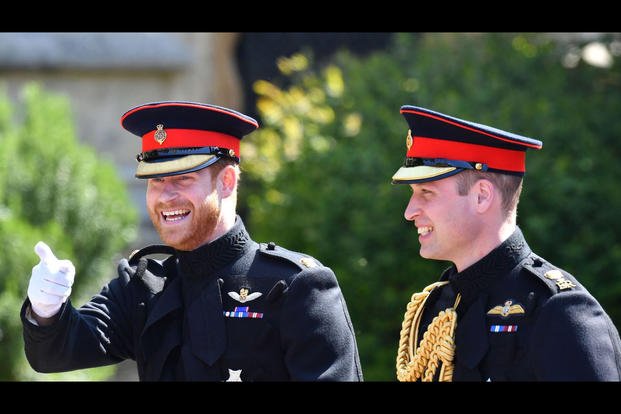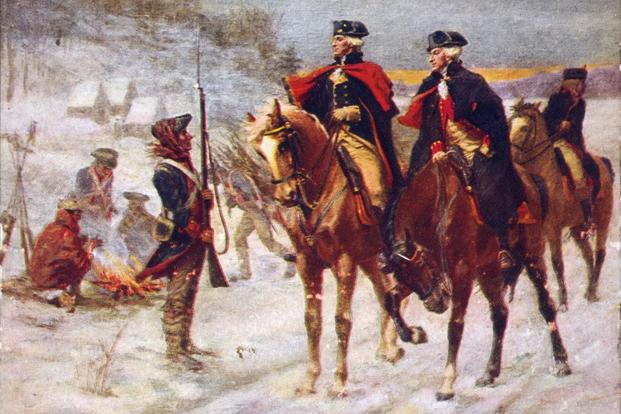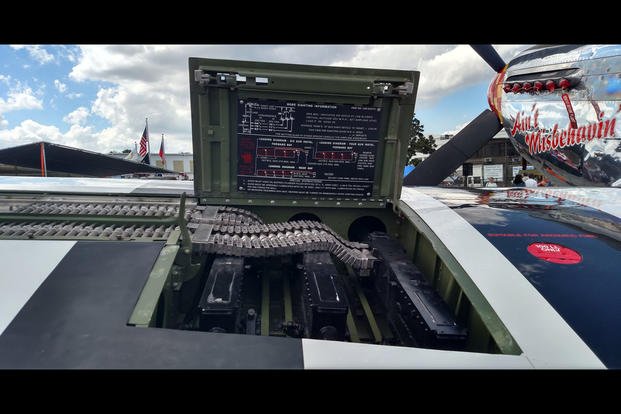By Blake Stilwell
There’s a long history of military slang, probably dating all the way back to when the first people hit each other with sticks and rocks. While military slang can be fun, it’s even more fun when it seeps into the common vernacular of everyday people. The only problem is when a word or phrase is too good, its origin gets lost in time, and people forget where it came from – but no longer.
Here are just a few words and phrases that came from military tradition.
1. “Best man”

In the days of yore, it was quite possible that a betrothed man might lose his wife even before their wedding to any number of possible hazards – rival bands, enemy leaders, or even random highwaymen. So while he was in the middle of the ceremony, he would enlist his best swordsman to cover his back while his attention was focused elsewhere or hold off an attacking party while the new couple made their getaway.
2. “Boondocks”

The original boondocks.
These days, to be way out in the boonies means you’re out in the middle of nowhere, somewhere in the sticks. When the term was coined, it meant that too, only the actual boondocks are in the Philippines. In Tagalog, “bundok” literally translates to “mountains” so when Filipino fighters told American troops they were headed to the bundoks during the 1898 Spanish-American War and the subsequent Philippine-American War, it meant they were headed to the islands’ inner wilderness.
3. “Cowboys”

On their way to the first Cowboys-Patriots Super Bowl.
Sorry, but the term “cowboy” used to define the ranchers and vaqueros of the Old West was never actually used for those guys at the time. They were usually just called cow herders or cowhands. The term “cowboy” goes well past the 19th Century. The original cowboys were American colonists loyal to the British Crown during the American Revolution. They would band together in guerrilla units and lure other units of rebel farmers into ambushes using cowbells to coax them in. After the war, it was used to describe criminals from Texas who made raids into Mexico.
4. “Face the music”
In the European military tradition (from which the U.S. tradition is derived), any disgraced officer who was summarily kicked out of his unit was done so in the most demeaning manner possible. As the regiment’s drummer played on, the officer would have his sword broken, his buttons removed, and his charges read to the entire room. The officer was them marched across the parade ground to the tune of the “Rogue’s March” toward the regimental band.
5. “Last ditch effort”

In the kind of fighting that took place in the 16th and 17 Century, troops didn’t just maneuver around the battlefields in the open, in tight formations, wearing bright colors. I mean, they did that, but they also constructed a series of earthwork redoubts and other protective places to hold. Among these was a series of trenches they could fall back to if the stuff started hitting the fan – and they would dig many in case things went really wrong. But everyone knew by the time you got to your last one, you had to do something amazing, or everyone was likely to die in that last ditch.
6. “The whole nine yards”

Loading up a P-51 Mustang.
This term appeared in the 1950s, after the end of World War II – and it has nothing to do with football or anything else where yardage is a factor. It refers to the length of the ammunition belts designed for American and British fighter planes during the war, 27 feet (or nine yards). When flying a particularly tough mission or otherwise using a lot of ammo, a pilot might have been said to use “the whole nine yards.”





